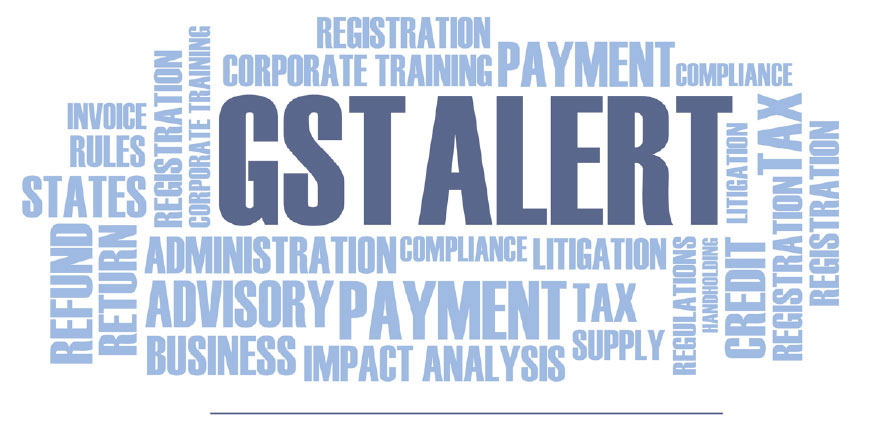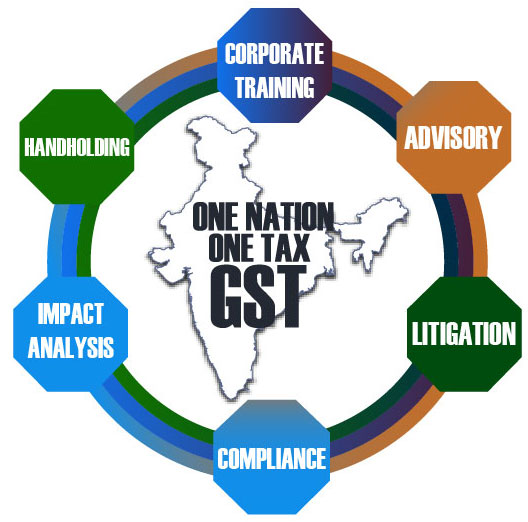Dated 27th April, 2020

GST department cannot raise demands for period before the takeover after finalisation of resolution plan.1
Petitioner (herein referred as transferee company) is aggrieved by the demand notice received from department for payment of excise duty and service tax liability. The liability relates to the transferor company prior to takeover date further the said liability was disposed off during the resolution process. Petitioner contend that the impugned action of the respondent authority is absolutely illegal cannot be sustained and therefore the demand in respect of notices and order pending as on the date of finalization of the resolution plan issued/raised by the respondents i.e. Central Goods and Service Tax Department, Government of India is required to be dropped.
The judgement was passed considering the overriding provision of IBC and was in favour of the petitioner.
Fact of the case
The transferor company was incurring huge losses and was unable to pay the debts to the Financial Creditor. Therefore insolvency application was filed by financial creditor under Section 7 of the Insolvency Bankruptcy Code 2016 before the National Company Law Tribunal, Kolkata Bench (herein referred to as ‘NCLT’).In response to the application Corporate Insolvency Resolution Process (herein referred to as ‘CIRP’) was initiated by the NCLT under the provisions of the IBC 2016.
During the resolution process the resolution plan laid down by the resolution applicant (herein referred as the petitioner) was unanimously approved by Committee of Creditors (hereinafter referred as “COC”). Further claims of all operational creditors (including the respondent) was collated and verified by resolution professional. It was concluded that the liquidation value of the transferor company was much less than the outstanding debt and therefore the liquidation value available to the operational creditors including the respondent revenue would be zero. The transferee company took over the transferor company after receiving final seal of approval of resolution plan.
Further we would like to highlight that despite the resolution plan having attained finality and having been executed, the respondents herein raised numerous demands along with interest on the petitioner for the period prior to transfer date. The Petitioner challenged such demand raised by revenue authorities in relation to period before take over under a writ jurisdiction.
The petitioner contended that having made the full and final payment as proposed by the resolution professional during corporate insolvency resolution process, all other remaining claims and proceedings stood extinguished in terms of the resolution plan.
Further it was highlighted that the resolution plan once approved shall be binding on the corporate debtor and its employees, members, creditors, including the Central Government, any State Government or any local authority to whom any debt in respect of the payment of dues arising under any law for the time being in force is owed.
The petitioner highlighted the amended provision of Section 31 of the IBC wherein it was clearly mentioned that the approved resolution plan shall be binding on the corporate debtor, its employees, members and all creditors including the Central Government, any State Government or any local authority to whom a debt in respect of the payment of dues arising under any law for the time being in force is owed.
Contention of the Department
The respondent has approached the Hon'ble Supreme Court of India against the order of the NCLT stating their revenue was curtailed and restricted as the result of the order passed by NCLT and thereby challenged the judgment of NCLT, however the same was rejected by the Hon'ble Supreme Court. Further the respondent argued before the Supreme Court that section 31 of the Act was not applicable on government authority . The same was rejected on the grounds that amended provision of IBC was not considered by the respondent and further it was made clear that provisions of IBC has an overriding effect and the same shall be applicable to government authorities as well.
Observation of the Hon’ble High Court Jodhpur
The Court clarified the legislative intent behind the amendment in Section 31(1) of the IBC. The same is reproduced below for easy reference:-
>“IBC has actually an overriding effect. For instance, you asked whether IBC will override SEBI. Section 238 provides that IBC will prevail in case of inconsistency between two laws. Actually, Indian courts will have to decide, in specific cases, depending upon the material before them, but, largely, yes, it is IBC. There is also this question about indemnity for successful resolution petitioner. The amendment now is clearly making it binding on the Government. It is one of the ways in which we are providing that. The Government will not raise any further claim. The Government will not make any further claim after resolution plan is approved. So that is going to be a major, major sense of assurance for the people who are using the resolution plan.”
Further it was held that respondent cannot argue that they were not heard by COC since the amendment in Section 31 of the Act applies to current situation where by operational creditors have been pertinently included in the scope. It was stated that the purpose of the IBC is salutary and it has been enacted to ensure that an industry under distress does not fade into oblivion and can be revived by virtue of the resolution plan. Once the offer of the resolution petitioner is accepted and the resolution plan is approved by the appropriate authority, the same is binding on all concerned to whom the industry concern may be having statutory dues. No right of audience is given in the resolution proceedings to the operational creditors viz. the Central Government or the State Government, as the case maybe.
In light of the ratio of the above judgment it is clear that the financial creditors have been given precedence in the ratio of payments when the resolution plan is being finalized.
It is the financial creditors who are given right to vote in the COC whereas, the operational creditors viz. Commercial Taxes Department of the State Government or the Central Government, as the case may be, have no right of audience.
Hence in view of the above discussion and Explanation to it was considered that the demand notices was illegal, arbitrary and cannot be sustained and therefore the demand in respect of notices and order pending as on the date of finalization of the resolution plan issued by the respondents are quashed and proceedings was required to be dropped.
Civil Writ Petition No. 9480/20191

BT Associates is a premier indirect tax consultant in kolkata, delivering high quality services to client in the area of indirect taxation.GST idea is a unit of BT Associates formed to share knowledge on stakeholders. We cover entire gamut from technical papers to recent development including IT under GST


-
Founder Member
- Bhaskar Thakkar
- Chief Executive officer
- BT Associates, India
- thakkar@btassociate.com
BT Associates is a premier indirect tax consultant in kolkata, delivering high quality services to client in the area of indirect taxation.GST idea is a unit of BT Associates formed to share knowledge on stakeholders. We cover entire gamut from technical papers to recent development including IT under GST






